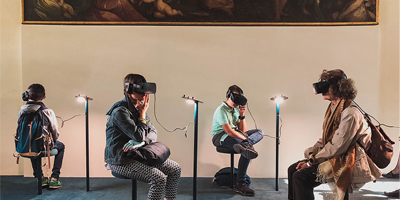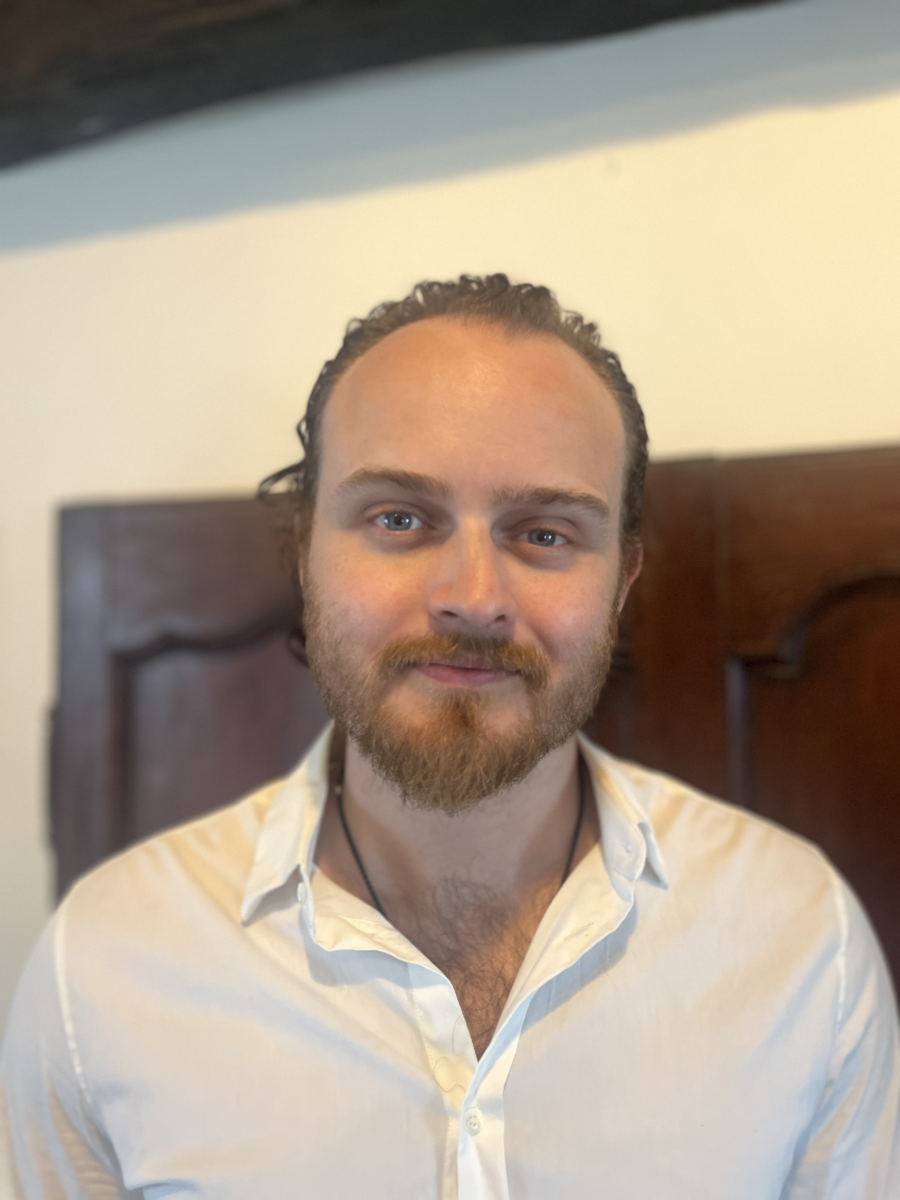.png)
Open Justice Week 2024
Open Justice Week 2024
The Open Justice Centre is pleased to present our seventh annual e-festival of public legal education.
During this week, running 24 June - 28 June 2024, we will be presenting legal education activities which have been written and presented by students of the W360 Justice in Action module and other law students.
Open Justice Policy Clinic

The Open Justice policy clinic is completing its fifth year and students have had the opportunity to work on three different projects this year. During their time in the policy clinic students gain experience of carrying out legal policy work for a charitable or third sector organisation. Students work on a brief provided by an organisation and carry out empirical research to produce analysis and recommendations, which can be used by the organisation to influence their policy work.
23-24 Policy Clinic Projects
During the academic year 23-24 students worked on three different policy briefs.
One group of W360 students worked on a project for YouthLink Scotland, the national agency for youth work in Scotland. They asked the policy clinic to research Scotland's current youth work provision and explore what this might look like, focusing on whether the Scottish Parliament should introduce a right for all young people to access quality youth work provision. The research identified the current state of youth work provision in Scotland and whether there are any gaps; what the impact of a right to youth work and/or strengthened CLD Regulations would have upon youth workers in Scotland; and what legislative changes would be required to implement a right to youth work in Scotland. An abbreviated version of their report can be seen by clicking on the following link.
A second group of voluntary students worked on a project for PACT (Prison Advice and Care Trust), a national charity that supports prisoners, people with convictions, and their children and families. PACT is carrying out some research into the experience of women in prison, including the support they both need and have access to, how effective this is and how their experience might differ with male prisoners. They asked the policy clinic to analyse the anonymous case studies / case notes from women prisoners to summarise the recurring themes in answer to these questions and suggest where any gaps in services may be. An abbreviated version of their first report can be seen at this link. PACT asked further questions based on the original report, and some of the students carried out further research to provide a second supplementary report, which can be found at this link.
A third group of voluntary students worked on a project for The Harbour, a non-for-profit organisation which offers alternative education and support for children aged 11 – 15 years who struggle to cope in schools. They asked the policy clinic to carry out research into the way in which support can be provided to these children, including those who are currently not attending school; those who have a Local Authority Education, Health and Care Plan (EHCP) with no named school; and those who are currently registered at a local authority school but struggling to attend. The research identified the number of children aged 11 – 15 years who were not currently registered at a school because of their school not being able to meet their needs; or with an EHCP with no named school; or who are regularly not attending their registered school and whether this is increasing, static or decreasing in the last ten years, and after COVID. They researched whether local authorities and schools are open to working in partnership (including providing funding in cases where they are legally responsible for the educational provision) with alternative education providers to support these children, and the implications of supporting those children in terms of legal structure, safeguarding, regulatory responsibilities and accountability to the local authority, schools and/or OFSTED.
Contributions from our W360 students
 In this section, our W360 students reflect on their experiences of working on projects this past year.
In this section, our W360 students reflect on their experiences of working on projects this past year.
In this blog, Celeste Blaize-Gibson asks 'Is passion necessary for pro bono work?'
In this blog, Sarah Lovatt asks 'Does there always need to be a winner?'
In this blog, Becky Cooksley discusses “The Invaluable Impact of Pro Bono in a Financially Barren Society”
In this blog, Anna Fields reflects on 'SLAPPs, Skills, and Professional Standards – My Open Justice Experience'
In this blog, Mifta Begum asks 'Why should I work for free?'
In this blog, Johanna Woodbridge discusses 'Empowering Justice: The Crucial Role of Pro Bono Work and Mediation'
Blogs from other students will be posted weekly on our blog during July and August 2024 so be sure to access it or subscribe for regular notifications.
Family Law Clinic
.jpg)
The Open Justice Family Law clinic started in 23-24 to give students an understanding of family law and the experience of putting their academic knowledge into practice. The clinic worked with three not-for-profit organisations, and students were able to choose which project they carried out.
Two groups of students worked on a project for LawWorks, a charity committed to enabling access to justice through free legal advice. One of the ways they do this is through LawWorks Free Legal Answers, a website where individuals on a low income, and not eligible for legal aid, can request initial or brief advice about a specific civil legal issue from a volunteer lawyer. LawWorks asked the Family Law Clinic to research and write standard answers to a variety of common family law legal queries, which they will keep as a template to respond to queries. The answers needed to covers both the law and any practical advice needed. An example of one of the answers provided by the family law clinic students can be found at the following link.
One group of students worked on a project for PACT, a national charity that supports prisoners, people with convictions, nd their children and families. They are carrying out research into the experience of women in prison, including the support they both need and have access to, how effective this is and how their experience might differ with male prisoners. They asked the family law clinic to analyse the anonymous case studies / case notes from women prisoners and to summarise the recurring themes in answer to these questions and suggest where any gaps in services may be.
Six groups of students worked on a separate project for PACT. The charity’s workers support women in prison, and where these women are also mothers, there are often family law proceedings relating to the care of the child with family members, or contact with them, whilst they are in prison. This often requires the women to complete an application form for a child arrangements order (CAO). As legal aid is only available in very limited circumstances for family law cases, the women have to complete the forms as litigants in person with the support of PACT social workers.
C100 forms are used to apply for a court order to manage arrangements for a child. Although the government provides guidance on how to fill out this form, staff and service users struggle to understand these documents as they use a lot of specialized language. In the words of one of the PACT staff ‘unless you have a degree in law, the document is a bunch of nonsense’. The students therefore drafted a document for the women prisoners and PACT workers to explain how to complete the C100 form. Some examples of their work can be found at the links below.
Pocket Prison guide to the C100 firm 7
Law Reform Clinic

The Open Justice Law Reform Clinic started in 23-24 to give students the opportunity to carry out research into an area of law being considered by the Law Commission and to make recommendations for reform. Students were able to choose from four Law Commission projects which were at the pre-consultation stage: Financial remedies on divorce, contempt of court, burial, cremation and new funerary techniques, and museum collections.
One group of students researched the law relating to financial remedies on divorce, comparing the law in England and Wales with the law in Australia, which is more rules-based and less discretionary. Their report was forwarded to the Law Commission as part of their call for evidence. An abbreviated copy of their report can be found at the following link.
Five groups of students chose to research contempt of court rules, looking at different aspects of the current law. This included comparative research looking at other countries’ rules regarding contempt of court, and analysis of the current rules, cases and secondary sources. Two groups reports will be forwarded to the Law Commission when their consultation opens in July 2024. Abbreviated copies of their reports can be found at the links below.
Contempt of Court Report Group D
Contempt of Court Report Corpus Juris team
Employment Law Clinic

The Employment Law Clinic project offers students an opportunity to engage with real-world business and employment law issues under the supervision of experienced academic and legal professionals. Students work with free advice organisations to provide legal information to people facing employment issues and draft resources to support small businesses. This year our students produced three posters that dealt with three particular employment law issues ( employment rights and dyslexia, pregnancy and maternity rights at work and unfair dismissal). Please click on the links below to see examples of the posters. Please note that this work has been produced by Open Justice students in March 2024 and should not be relied upon for legal advice. Please consult a legally trained professional or organisation such as your local Citizen Advice or ACAS for advice on your specific circumstances.
Employment rights and dyslexia
Pregnancy and maternity rights at work
Open Justice Legal Technology

Students on the Legal Tech project design and build apps and chatbots using a platform developed by Josef. Students are given a brief and then spend time researching the legal issues before they start designing their solution. Students are introduced to design thinking and explore the importance of human centred design.
Each year students produce an array of incredible legal chatbots:
Haider Ali designed ‘Parkthatfine’ a chatbot to support people who receive a parking ticket he said:
"Knowing people who had received parking tickets and wanted to appeal them, I was amazed at how difficult this process was. With a unique process for each private parking company and entirely separate processes depending on the type of ticket received, I created a chatbot that guides motorists on how to appeal their tickets using a piece of software called Josef. I focussed on tickets issued by private companies in England whilst trying to create an informal but efficient platform to do this. The legal technology project is very current with the increase in the use of technology in law generally. To anyone considering whether this is the right project, I will say it is a lot of fun and completely different!"
.jpg)
Chloe Connor
Chloe created a chatbot that helps people with legal guidance on purchasing a property:
“My chatbot was developed to advise individuals on the legal process of buying a property, whether it is their first time or not. I saw conveyancing as an untouched subject when it came to legal advice that needs to be addressed - my chatbot aimed at closing such gap. My experience with the Open Justice Legal Tech, was profound. Without the education and awareness through The Open University, I would be unaware of the variety of methods pro bono can be offered and access to justice achieved. This was a thoroughly enriching and enjoyable module using technology creatively, that I would take time and time again if I had the opportunity”.

James Richards
James was inspired by his own experience to create his chatbot Harvey which gives guidance on landlord’s rights.
“This project gave me a small but powerful insight into how legal technology can help people. After my time with the OU I now know, of course, that lack of knowledge and understanding present as a massive barrier to access to justice. Hardly a surprising point given my prior experiences. Furthermore, research led me to reading about public interest organisations that create apps for this very issue, with features such as dispute resolution tools and chat functions. The legal world is embracing the positive impact that technology can have, this will only continue to grow, and I really enjoyed getting some experience into how that can work.
I have always enjoyed technology and therefore it was an easy choice when deciding on my project for the Open Justice Module. Working with the Josef platform was very enjoyable and to me it showed that there is in fact more humanity in these chat bots than we sometimes believe. I carefully wrote every single word, the empathy and care in those words are genuine, the responses are human and the desire to help is real. Lastly, having the opportunity to apply my years of legal studies to an area that I've always enjoyed was a wonderful and rewarding experience.”
Criminal Justice Clinic

The Open Justice Centre runs an in-house criminal justice clinic where students research and advise on live criminal cases under the direct supervision of a solicitor. Students’ research and advice on appeals for people who have been convicted of very serious criminal offences but who are maintaining their innocence.
The students consider the evidence and unused material on a live criminal case where the convicted defendant continues to protest their innocence. Students carry out research and apply legal principles to determine whether there are any grounds for referral to the Criminal Cases Review Commission or for an appeal to be made.
The cases involve serious criminal offences such as murder, manslaughter, serious assault, and drugs cases, amongst others. Students are provided with appropriate training and have regular supervision meetings with the supervising solicitor and case worker. Students obtain valuable legal, professional and collaboration skills whilst the client obtains a well thought out advice on their case.
You can read some blogs from students that have worked on the Criminal Justice Clinic project at the following links:
